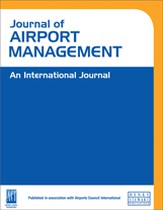Navigating the PFAS landscape and successfully transitioning away from aqueous film-forming foams
Abstract
Per- and polyfluoroalkyl substances (PFAS) are a class of synthetic compounds that are ubiquitous in many consumer and industrial products, including certain fire-fighting foams such as aqueous film-forming foam (AFFF) required by the Federal Aviation Administration (FAA) until 2024 for incident response and readiness. Recent regulatory changes, public health concerns and liability implications are likely to result in the discontinuation in the supply of AFFF; use of AFFF may also no longer be a tenable option for many airports based on its potential impact on public health via groundwater and public drinking water supplies. Transitioning from AFFF to a fluorine-free (F3) product involves assessment of liability, planning capital acquisitions and implementing the change successfully across airport lines of business. This paper specifically explores the successful PFAS management and transition strategy at Nantucket Memorial Airport.
The full article is available to subscribers to the journal.
Author's Biography
Noah J. Karberg Noah Karberg AAE, ACE, holds a BS in natural resources from the University of Michigan and an MS in forestry from Michigan Technological University. He began his career as an ecologist with the USDA Forest Service, where his work was published in Nature, Oecologia and Biological Invasions. Noah began his second career in airport administration as the Environmental Coordinator for Nantucket Memorial Airport in 2011. In 2017 he was promoted to Assistant Airport Manager. As the Airport Manager since 2023, Noah directs an organisational culture that values accountability, performance and adaptive management. He currently directs a multidisciplinary stakeholder team in the modernisation of the airport by maximising the implementation of data-driven analytics into operational and business decision making. Under Noah’s leadership, the airport has maintained positive cash flow while undertaking a complex per- and polyfluoroalkyl substances (PFAS) investigation, adapting to an evolving air service portfolio and delivering critical major capital projects including a recent US$40m apron expansion. Noah remains dedicated to delivering practical initiatives as the airport industry looks to address future accommodation of advanced air mobility, competing environmental benefits and sustainable revenue generation.
Cameron M. Woods Cameron Woods holds a dual Bachelor’s degree in government and global studies from Colby College, where she specialised in the intersection between geography and politics. Cameron worked as a geopolitical intelligence researcher and analyst before transitioning to environmental policy. She joined Nantucket Memorial Airport as the Environmental Coordinator in 2023, administering the airport’s environmental programmes and policies in accordance with all federal, state and town regulations and protections, including focus areas of per- and polyfluoroalkyl substances (PFAS) contamination and groundwater protection. Cameron serves on the Massachusetts Airport Management Association’s Board of Directors and is particularly interested in sustainable energy, advanced air mobility, and diversity, equity and inclusion (DEI) within the aviation industry.
